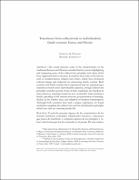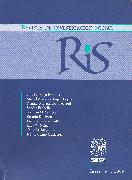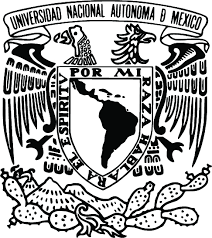Please use this identifier to cite or link to this item:
https://ru.iis.sociales.unam.mx/handle/IIS/5394| Title: | Transitions from collectivistic to individualistic family systems: Kenya and Mexico |
| Authors: | Wilson, Stephan M. Esteinou, Rosario |
| Keywords: | sistemas familiares indidualistas mexican families familias mexicanas kenyan families collectivistic family systems familias kenianas |
| Publisher: | Universidad Nacional Autónoma de México, Instituto de Investigaciones Sociales |
| Series/Report no.: | Revista de Investigación Social;Año VI, Número 9 |
| Issue Date: | 2009 |
| Abstract: | El artículo presenta algunas de las características de los sistemas familiares extendidos tradicionales kenianos y mexicanos que ponen de manifiesto y comparan algunos de los principios y valores colectivistas que los han sostenido en el pasado. De esta manera, analiza algunos de los factores, como la modernización, la religión y otros, que han impulsado el cambio cultural y han causado un impacto en la estructura de los sistemas familiares. Tanto las sociedades como los sistemas familiares han atravesado y están atravesando por una transición hacia modelos más individualistas, aunque, de alguna manera, persisten los principios del colectivismo. Algunas de estas tendencias son: la libertad de elección de la pareja, el matrimonio basado en el amor, la neolocalidad al momento de formar una familia, la difusión de la estructura nuclear, la postergación del matrimonio, la disminución de las tasas de fecundidad y la adopción de métodos anticonceptivos modernos. Aunque ambos países han tenido una experiencia única, encontramos similitudes con respecto a los principios colectivistas e individualistas que han venido orientando la vida familiar desde hace tiempo. Abstract: The article presents some of the characteristics of the traditional Kenyan and Mexican extended family systems highlighting and comparing some of the collectivistic principles and values which have supported them in the past. It analyses then some of the factors, such as modernization, religion and others, which have promoted cultural change and impacted on structuring family systems. Both societies and family systems have experienced and are experiencing a transition towards more individualistic patterns, though collectivism principles somehow persist. Some of these tendencies are: freedom in mate selection, marriages based on love, neolocality when forming a family, spreading of the nuclear structure, postponement of marriage, decline in the fertility rates, and adoption of modern contraception. Although both countries have had a unique experience, we found similarities regarding the collectivistic and the individualistic principles which have and are orienting family life. |
| URI: | https://ru.iis.sociales.unam.mx/handle/IIS/5394 |
| Type: | PeerReviewed Artículo |
| Rights: | https://creativecommons.org/licenses/by-nc-sa/4.0 |
| metadata.dcterms.bibliographicCitation: | Wilson, Stephan M. y Rosario Esteinou (2009). "Transitions from collectivistic to individualistic family systems: Kenya and Mexico". Revista de Investigación Social 9 (invierno): 83-107. |
| Appears in Collections: | Revista de Investigación Social |
Files in This Item:
| File | Description | Size | Format | |
|---|---|---|---|---|
| 04_wilson.pdf | Artículo | 161.8 kB | Adobe PDF |  View/Open |
| ris9_portada.jpg | Portada | 874.14 kB | JPEG |  View/Open |
Items in DSpace are protected by copyright, with all rights reserved, unless otherwise indicated.
